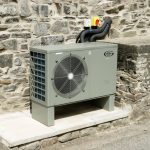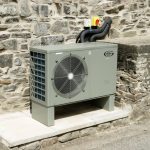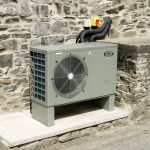Q Should I spend the equivalent of a quarter of the value of my home to reduce its carbon footprint?
This cost would replace windows and add insulation and cladding. It should keep the heating bills down – it already has a ground source heat pump. I intend to live in the house for at least the next five years. I can afford it but does it make economic sense?
JK
A As I don’t know what the value of your home is, I can’t say for sure that you’ll have to spend as much as a quarter of it to reduce its carbon footprint but it could be a lot less. Because you already have a ground source heat pump, you have already made a good start. According to the Energy Saving Trust heat pumps “are much more efficient than gas boilers” and “will always help to cut your carbon emissions”.
In its “Top tips to reduce your carbon emissions”, the Energy Saving Trust is also a big fan of insulation. “For a quick fix,” says the trust, “insulate any exposed hot water pipes along with your hot water cylinder if you have one”. But “insulating the building itself will make a bigger difference, making your home warmer in winter, as well as lowering your energy bills and cutting your carbon emissions”.
It is keen on putting a stop to heat loss through gaps around windows and doors, between floorboards or up a chimney: “Draught-proofing these areas is a cost-effective way to save energy and reduce your household’s carbon emissions [and] it’s easy to do.”
According to the trust, cladding your walls could cost about £10,000 if you opt for external insulation, and could save you up to £350 a year, depending on the type of property in which you live.
Over at Propertyroad.co.uk, it says double glazing will improve the energy efficiency of your home and add as much as 10% to its value.
All of this suggests that as well as making total environmental sense, spending money on improving energy efficiency makes a lot of economic sense as well.





